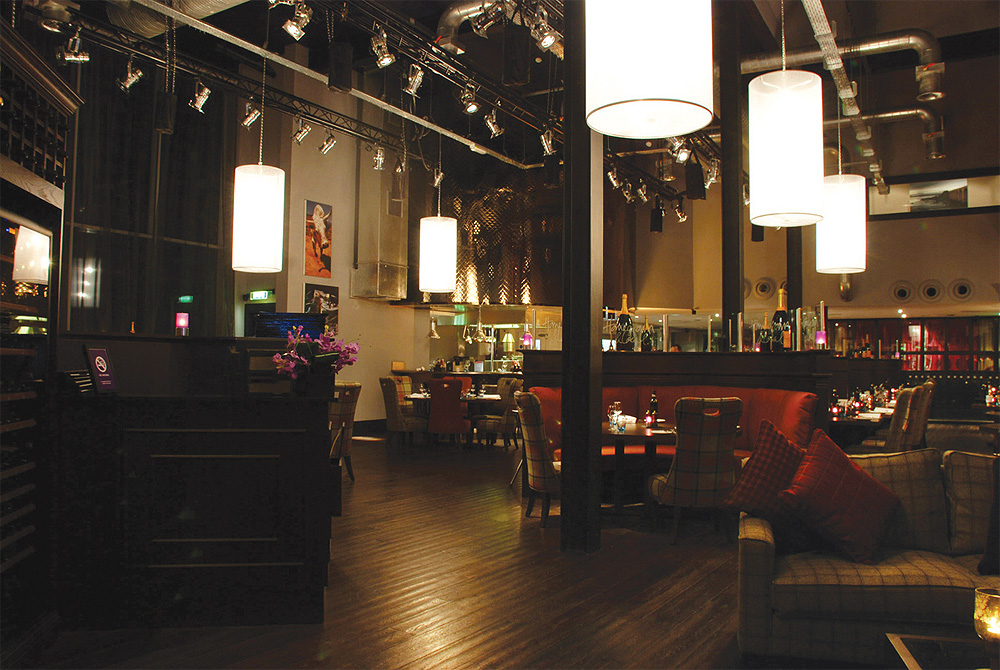
Malmaison and Hotel du Vin
Staying fresh
Recovering from the impact of the global downturn, Malmaison and Hotel du Vin look set to further build upon a steadily growing reputation for quality service
As the UK’s leading lifestyle hotel group, Malmaison and its sister chain, Hotel du Vin, have more than 1900 bedrooms across 26 hotels throughout the UK. Both brands were established in 1994 and today belong to MWB Group Holdings. Malmaison is named after the Chateau Malmaison on the outskirts of Paris, and its hotels typically include a bar, brasserie, private dining room and meeting rooms of various sizes. Some also possess additional facilities such as a champagne bar and a spa, and others have gyms.
The Hotel Du Vin, on the other hand, is based on the principle of serving quality bistro food, complemented by extensive wine lists and first class accommodation. Based primarily in university or cathedral towns, Hotel Du Vin offers a wide range of luxury extras, as CEO, Robert Cook reveals: “We run this business with the approach that it is a ‘restaurant with rooms’. Food and beverage represents nearly half of our annual turnover, and we really broke the mould in being the first hotel to provide a decent meal in a hotel.
“Affordable luxury is important to us, and we are always looking at new ways of expanding on our offerings. The chef team are seasonally changing menus, and regularly conducting different food promotions or revising our lunchtime offers to keep things fresh.”
The company is also looking to refresh its Hotel du Vin in Henley, in Oxfordshire. Robert explains how this branch is being updated to reflect the local rowing culture: “Whilst Henley has been a rocketing success in terms of rooms, we feel that the bistro service could be even further improved. Our aim is to create something that is a little more in keeping with the Henley infrastructure, and so we hope to create a sort of boathouse-style feel to the restaurant. This will be done without taking anything away from the corner stones of what Hotel du Vin stands for – great wine and great food in a bistro style; but it will hopefully add a more family-feel to the experience.”
Malmaison’s desire to cater for the local market is an important part of its philosophy, as Robert explains: “Simply dropping prices or carrying out promotions all the time is not enough – and it is not necessarily what customers want either. We learnt this from our operations in Aberdeen, where we decided not to offer an ordinary brasserie menu. Because we were in the home of Aberdeen Angus, we decided we would provide a fantastic steak restaurant instead. This was a massive success and it was achieved without losing the Hotel du Vin stamp – and this is what we hope to achieve at Henley.”
Off the back of this success with Malmaison in Aberdeen, the company is also hoping to follow this up with a Hotel du Vin there as well. This is then hoped to provide the platform for an even wider expansion to overseas locales, according to Robert. He outlines some of the company’s ambitions: “I believe that this is how the brand will grow – we already have plans to build a 42-bedroom Hotel du Vin in Canterbury and we have entered negotiations for one in Chester and Durham too. The next step will be to really stretch our legs and take the brand to other countries in Europe.”
Robert would like to see his company opening hotels in Amsterdam initially, as a springboard into the European market. His ambitions do not stop there however, as he highlights: “I would love for us to be in Asia as well, particularly in the Chinese cities such as Beijing or Shanghai – and even Hong Kong. Our ultimate aim is to break into America, and my dream would be to see our hotels across New York, Boston, Washington, Dallas, Austen and Chicago.”
Servicing the corporate market has been especially difficult in recent times, as a result of the recession. Robert reveals how his company has coped with some of the challenges: “The corporate market has been very suppressed, and we took a big hit on room rates as a result. We managed to maintain occupancy, however, and our food and beverage portfolio stayed strong. This was a result of consumers having more money to spend because of cheaper mortgages, and so our strong focus on restaurant services helped us maintain business.”
With so many projects in the pipeline for both Malmaison and Hotel du Vin, Robert remains largely positive about the future of his company. He concludes: “We are not out of the woods just yet in terms of the economic downturn, and we will have to stay promotionally driven for the short-term future. I expect mid-2011 will be when the market really starts to pick up again and this recovery will lead into 2012, with the London Olympics having a massive positive effect upon businesses in the UK. As long as we continue to stay flexible and inventive on both pricing and services, and by looking after the customers that have been loyal to us in the past 15 years, I expect us to grow significantly in the years to come.”